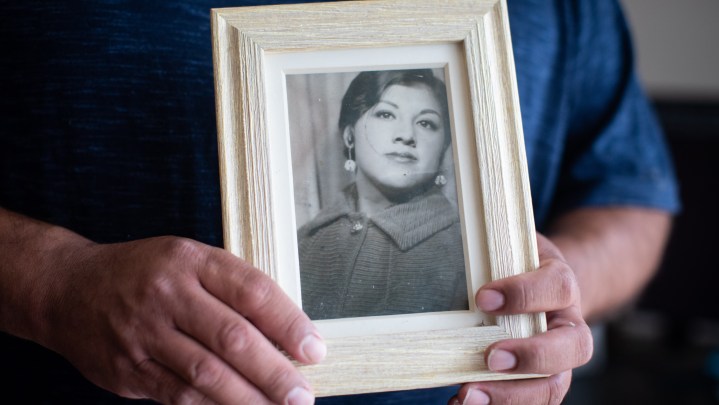
Probate court cases rise as people die from COVID without wills
Probate court cases rise as people die from COVID without wills

About half of all people who die in the United States die without a will — a legal directive of what will happen to their money, debts and properties after they’re gone. More than 700,000 people have died from COVID-19 in the United States, which means thousands have died without wills.
Probate courts help people figure out who gets to keep what after a loved one’s death.
“Probate court is the most important court in the courthouse,” said Veronica Vasquez, a probate judge in Bexar County, Texas. “Why? Well, because unlike criminal courts — you may never end up in a criminal court or know somebody you love that ends up in a criminal court., or perhaps you never have a civil issue and you never have to be sued or sue someone — but somebody you know and love will die.”
During the global pandemic, the deaths leading to probate cases have come faster than some courts can handle. In Hidalgo County, Texas, probate Judge Jo Anne Garcia said her caseload has grown by as much as 300%.
And the stories are heartbreaking. Garcia said she has seen lots of couples where one person dies right after the other.
Recently, she said she oversaw the case of a daughter who filed to probate her father’s estate after he died of COVID. “And before she could come to the hearing, she passed of COVID,” Garcia said.
One reason so many people die without wills is because they can be pricey to draw up — anywhere from several hundred dollars to several thousand. But Garcia said dying without one is more expensive. There are attorney’s fees, court fees and untangling everything can take years.
Charlie Aguiñaga helps people with some of that detangling. He’s an attorney with Texas RioGrande Legal Aid. And the advice he gives to clients?
“Don’t panic. Go through your parents’ mail, go through your children’s mail — whoever passed away — and look for bank statements. And, actually, don’t hide from the creditors, and determine whether you have to see a lawyer,” he said.
Rules for wills vary from state to state, but in Texas people can write their own. They’re called holographic wills. Their downside, though? It’s easy to challenge their legitimacy in court.
There’s a lot happening in the world. Through it all, Marketplace is here for you.
You rely on Marketplace to break down the world’s events and tell you how it affects you in a fact-based, approachable way. We rely on your financial support to keep making that possible.
Your donation today powers the independent journalism that you rely on. For just $5/month, you can help sustain Marketplace so we can keep reporting on the things that matter to you.


















